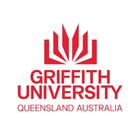Bachelor of Forensic Science
- Posted by Griffith University
- Home
- Courses
- Griffith University
- Bachelor of Forensic Science
Bachelor of Forensic Science
Forensic investigators are skilled, dedicated professionals with the ability to keep an open mind and concentrate on hard evidence. In this degree, you will explore science in real life and receive training in handling criminal casework in forensic biology and forensic chemistry. You will develop in-depth knowledge of new forensic…
Categories
COURSE DESCRIPTION
Forensic investigators are skilled, dedicated professionals with the ability to keep an open mind and concentrate on hard evidence. In this degree, you will explore science in real life and receive training in handling criminal casework in forensic biology and forensic chemistry.
You will develop in-depth knowledge of new forensic analysis methods and innovations, and gain valuable experience from real casework. You will practise presenting expert evidence in moot courts. You will learn from academic staff who have been called to work on projects such as the forensic identification of victims of the Asian tsunami and the Bali bombings, and who provide expert evidence in Australian courts.
In your first year, you will take core courses in biology, chemistry, molecular genetics and forensic investigation. In your second and third years, you will focus on your chosen major and continue to develop your skills in core areas.
Majors
- Forensic Chemistry
- Forensic Molecular Biology
My career opportunities
You will be prepared to work as a DNA expert, a forensic molecular biologist, forensic chemist or forensic toxicologist and as an acknowledged expert in these or a variety of other roles within the criminal justice system. You will also be able to pursue scientific careers not directly related to forensic organisations, in areas such as molecular biology, analytical chemistry and biomedical science.
Pathways to further study
You may choose to undertake a fourth-year research honours degree, which can lead to a Doctor of Philosophy (PhD).
REQUIREMENTS
Standard academic entry to our undergraduate degrees requires completion of secondary school comparable to Australian Year 12 or equivalent academic achievement.
English language requirements apply to International applicants and other applicants whose previous study was undertaken in a language other than English. The minimum English language requirements for such applicants for entry to this program are as follows: A minimum overall band score of 6.5 on IELTS (Academic) with no sub-score of less than 6.0; OR a minimum score of 575 on TOEFL; OR an internet-based (iBT) TOEFL score of 79 (no sub-score less than 19); OR no score less than 3+ in each skill of the ISLPR (conducted by ISLPR Language Services only); OR a minimum overall score of 176 (no score less than 169) on C1 Advanced (formerly Cambridge Certificate in Advanced English) or C2 Proficiency (formerly Cambridge Certificate of Proficiency in English); OR an overall score of 58 in the Pearson Test of English (Academic) with no score less than 50.
EDUCATIONAL INSTITUTION
Griffith University is ranked in the top 2% of universities worldwide and strives to create a brighter future for all by prioritising innovation and social impact. We are committed to providing international students with quality education, guidance, and support. With Australia’s most awarded teachers, Griffith University offers a full suite of undergraduate, postgraduate and research degrees in areas including architecture, construction, and planning; business and government; criminology and law; education; engineering, IT and aviation; humanities, languages and social science; medicine, dentistry and health; music and performing arts; science and environment; visual and creative arts.
Griffith University is ranked in the top 2% of universities worldwide and strives to create a brighter future for all by prioritising innovation and social impact. We are committed to providing international students with quality education, guidance, and support.
With Australia’s most awarded teachers, Griffith University offers a full suite of undergraduate, postgraduate and research degrees in areas including architecture, construction, and planning; business and government; criminology and law; education; engineering, IT and aviation; humanities, languages and social science; medicine, dentistry and health; music and performing arts; science and environment; visual and creative arts.




